I'm starting to fall in love with nonfiction. It started years back with a book that looked at history through the lens of the oak tree.
Viewing: Blog Posts Tagged with: adult reading, Most Recent at Top [Help]
Results 1 - 7 of 7
Blog: A Year of Reading (Login to Add to MyJacketFlap)
JacketFlap tags: history, nonfiction, adult reading, Add a tag
Blog: A Year of Reading (Login to Add to MyJacketFlap)
JacketFlap tags: reading, audio, adult reading, It's Monday, Add a tag
Display Comments Add a Comment
Blog: A Year of Reading (Login to Add to MyJacketFlap)
JacketFlap tags: adult reading, It's Monday, Joy of Reading, Add a tag
Blog: Claudsy's Blog (Login to Add to MyJacketFlap)
JacketFlap tags: fiction, articles, writing, non-fiction, children's stories, adult reading, scenarios, idea sparkers, news feeds, Writing and Poetry, Add a tag
Have you run out of fresh ideas for stories or articles? Are you hanging from the last knot at the end of your rope? What are you going to do?
There’s an easy answer to that last question. Sometimes it’s not the lack of material out there for a writer to use. It is everywhere. Resetting your mental perspective on ideas could sweep a multitude of viable avenues onto your storyboard.
Hunting for Stories
Find a newspaper or tackle Yahoo! News feeds and see what you can find. Here are ten possible idea sparkers found in less than fifteen minutes.
1. Elizabeth Taylor
2. Japan’s earthquakes
3. Earth’s axis
4. Housing slump
5. Pennies saved
6. Control tower scare
7. Volcano in Africa
8. Skin care for guys
9. Another oil slick hits LA coast
10. Sports themes–Michael Jordan
Have News, Now What?
On the surface these all seem uninteresting. How could any of them spark ideas that haven’t been done to death?
Let’s see what could come of them with a bit of thought expansion.
1. Elizabeth Taylor—everyone talks about her beauty, her film career, etc. On the non-fiction side, experts will comb through everything in her life for their fodder. On the fiction side there is much to think about. Here was a young girl who was beautiful, with violet eyes, who loved to act. She was given that chance and excelled.
But, what could have happened to her without that chance? What could a beautiful young girl, without such talent, experience during her teen years? What if she really preferred a career behind the spotlight—say, as a set designer? Her talent could be in art. Such scenarios abound.
2. Japan’s earthquakes—tons of ideas come from this news. Of course, there’s one aspect that many wouldn’t use. This goes along with #3 in our list. (Underlying info revealed that when the big quake hit Japan, three things happened which explain the destruction. One: the area of the quake dropped the landmass approximately two feet in altitude, two: Japan’s landmass was drawn 6.5 inches closer to the United States, and three: the quake caused an axial shift of the Earth.
Those facts hold significant ideas in their grip. Non-fiction possibilities: what impact may these geological realities warn us about, interv
Blog: A Year of Reading (Login to Add to MyJacketFlap)
JacketFlap tags: mysteries, adult reading, Add a tag
At the end of my post "Mini Lessons From My Summer Reading," I said that reading THE THOUSAND AUTUMNS OF JACOB DE ZOET had clarified for me why I don't generally like reading mysteries.
It seems to me that in a mystery, the author and the detective character are working together to solve the mystery. As the reader, I'm in on lots of the clues, but often, I doesn't have access to all of the clues that it takes to solve the mystery. It frustrates me to no end when the mystery gets solved with information I never had access to. Because I know that the author will make it impossible (or nearly so) for me to solve the mystery based on the clues provided in the book, I don't really try. I disengage as a reader. For me, reading a mystery is like watching a movie -- I'm on the outside looking in, an observer but not a participant.
In a novel like JACOB DE ZOET, it feels like the author is working directly with me, the reader, to make sense of the story. Every (non-mystery) novel is still a kind of a mystery because the author gives me all the clues or information I will need to make sense of the story. However, I'm working with the author because it's up to me to pay attention to the clues s/he gives me, to follow the bread crumbs that are dropped for me to follow so that I can construct the story together with the author. The author trusts me, the reader, to be clever enough and observant enough to make sense of it all. I like the kind of book where I collaborate with the author to make meaning and solve the puzzle of the story s/he is telling.
What do you think? Agree? Disagree? Is there some joy in reading mysteries that I'm missing?
Blog: A Year of Reading (Login to Add to MyJacketFlap)
JacketFlap tags: adult reading, minilessons, Add a tag
The Thousand Autumns of Jacob De Zoet
by David Mitchell
Random House, 2010
I own it. The audio version, too.
We'll spend the first days of the new school year talking about reading preferences: favorite books and authors, book choice, just right books, etc. This year, my mentor text for all my beginning-of-the-year mini lessons will be the best adult book I've read since last December: THE THOUSAND AUTUMNS OF JACOB DE ZOET. (For the record, the previous best book: THE LACUNA by Barbara Kingsolver.)
Here are some mini lessons I'll be able to teach while holding up this book:
BOOK CHOICE: This is the newest book by one of my favorite authors. When I heard David Mitchell had a new book out, I didn't wait to hear what anyone else thought about it. I trust this author. I knew it would be good. I read it as soon as I could get my hands on it. {Who are your favorite authors? What are your favorite books?}
PACING: I read this book through my ears by listening to this book, rather than through my eyes by seeing the print. I noticed many times when I wished I could slow down to figure something out or savor the language, or speed up so that I could see how an exciting part turned out. {Do you read faster or slower sometimes? When? Why?}
CHARACTERS: There are lots of characters with foreign names in this book. I had to pay close attention while I listened so I could keep them straight. It might have been easier if I could have seen the names. The reader of the audio book did a good job giving each character an accent. Sometimes that's how I remembered who was who. {How do you keep the characters straight as you read? What does the author do to help you?}
PLOT/SUBPLOT: There are lots of story lines in this book. It was important to remember what happened to Jacob, the Dutch clerk; Orito, the Japanese woman doctor (pretty amazing for 1799); the many Japanese translators (Japanese/Dutch); Marinus, the scientist/doctor/harpsichord player; Lord Abbot Enomoto, evil incarnate. {What is the main story in your book (plot)? What is one smaller story in your book (subplot)?}
Besides all the main plots and subplots, there were the times when the author would go off on a tangent that didn't really take the plot anywhere -- a character would tell a story or there would be an extended description of a place -- but I trusted the author and went along for the ride. {Tell about a time when you had no idea why the author seemed to go off-topic, but you trusted the author and it turned out to be really important.}
There's a whole lot of plot/subplot in this book, but in the end, I think it was a book about character. (I should have guessed that from the title, right?) {Is your book more strong in plot or character?}
READING PROCESS: This is a really long book. I stayed with it until the end. {How do you keep going in longer and longer books?}
AUTHOR'S STYLE: I love the way Mitchell writes. At one point, I had to turn off the recording and write down a line as soon as I could get my hands on paper and pencil. By way of telling another character that his story was exaggerated, Marinus tells him that he "...rather over-egged the brûlée." {Let's start a bulletin board of lines we love in the books we're reading. Be sure you write the title and the author of your book, the page number you found it on, and copy the quote exactly as the author wrote it. Use quotation marks. Here, I'll g
Blog: Darcy Pattison's Revision Notes (Login to Add to MyJacketFlap)
JacketFlap tags: adult reading, Janni Simner, revise novels, YA reading, links, literature, novel, characters, revision, conversations, foster child, Add a tag
I’ve been catching up reading the blogs of others, mostly those who labor to create novels, picture books and stories for kids. Here are a few interesting posts:
- The Crazy Blond writes a poignant post on mothering a foster child.
- Is it true? 7% more adults are reading literature? Even young adults are reading novels? This is indeed, good news.
- From the Guide to Literary Agents blog comes a surprising post on revision: Tips on Rewriting from Your Peers.
- And Janni is talking to her characters and her story again. These conversations fascinate me!
Post from: Revision Notes Revise Your Novel! Copyright 2009. Darcy Pattison. All Rights Reserved.
Related posts:




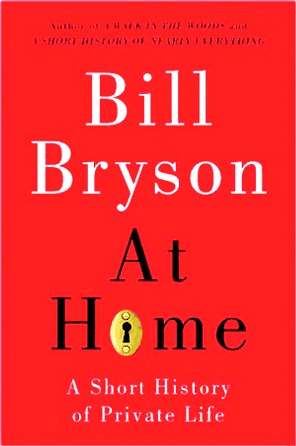

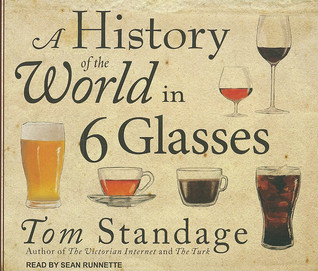


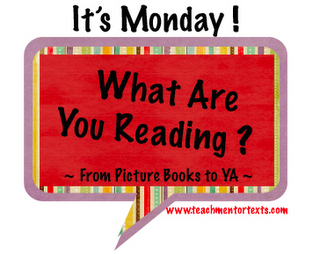




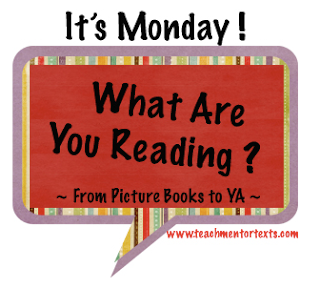
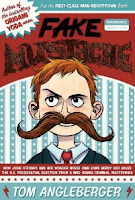

Wow-, the John Green Club, following the crowd books and a Sparkly Skirt--what's next? :-)
Lots of good books here, Mary Lee. I've read Feed by MT Andersen & thought it was compelling. I will look for this new one. How great to be able to meet him. I love the John Green books, too & I will try to see if I can find the Will Grayson, Will Grayson. Thanks, Mary Lee.
It's always good to know that authors who impressed you once before can be relied upon toi impress you again - "Gut and Bone" and "Will Grayson" sound like home runs (again) for the authors - I'll have to check these out.d
You knew you would hook me with "it's a baseball book." I am also going to take your advice and begin to listen to books. I never have listened because I always was concerned about stopping the audio but then again I stop my reading by closing a book. Again thanks for opening my eyes to another great resource. On a side note what digital device do you use to listen to the stories on?
So happy for you that you get to see M.T. Anderson. He's a great speaker. I adored the Chronicles of Harris Burdick and Will Grayson, Will Grayson. I read it, but I've heard that it's a fantastic audiobook. Hope you enjoy!
I love your TBR (teetering bedside reading)acronym. The Hero for Wondla looks very interesting, can't wait to hear more about this one.
Leaders get to follow every once in a while, don't we?!?! :-)
It's the second book in a series. I read the first one aloud last year, and it was a landmark book for that class.
I love the audio of Will Grayson, Will Grayson- Tiny is one of my favorite audio characters ever!!! He even sings- Enjoy!
Also, love your TBRs :)
Happy reading this week :)
Okay I am putting Will Grayson Will Grayson into my audio wish list. I have yet to read a John Green book but I can see readers enjoy his books.
PS going to check out the Odyssey Award winners as didn't know about them! Live and learn.
Kathryn
I loved Will Grayson, Will Grayson! And the MT Anderson book looks fantastic. My nightstand list is constantly growing--I actually woke up everyone in the house the other night, because I knocked it down when I was sleeping!